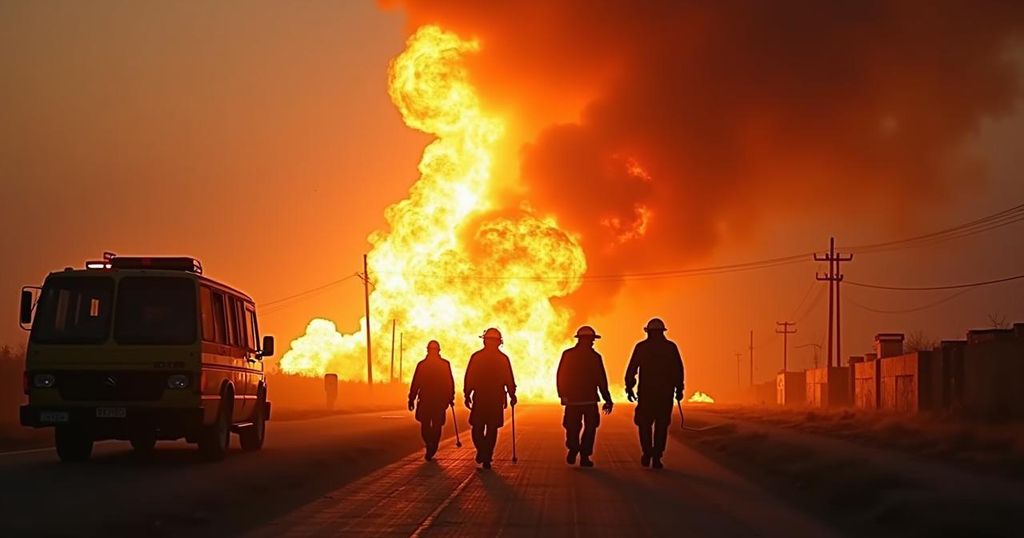Suicide Bombing in Karachi Claims Lives of Chinese Nationals
A suicide bombing in Karachi killed at least two Chinese workers and injured others, prompting condemnation from the Chinese government. The Baloch Liberation Army claimed responsibility for the attack against a convoy of Chinese nationals associated with a power company. The incident raises concerns about the security of foreign nationals in Pakistan amidst ongoing tensions related to the China-Pakistan Economic Corridor.
A suicide bombing in Karachi, Pakistan resulted in the deaths of at least two Chinese nationals and injuries to another during an attack on their convoy on the night of Sunday. The incident occurred outside of Karachi airport, targeting employees of the Port Qasim Electric Power Company. In response, China condemned the bombing as a terrorist attack and urged an immediate investigation by Pakistani authorities to bring the perpetrators to justice. The explosion was so powerful that it caused significant damage to several vehicles and left at least ten Pakistani security personnel escorting the convoy wounded. The Baloch Liberation Army (BLA), a militant group active in Pakistan’s Balochistan province, claimed responsibility for the bombing. In its statement, the group emphasized that a suicide bomber had crashed an explosives-laden vehicle into the convoy. The Pakistani Foreign Ministry described the bombing as an assault on both the nation and the long-standing friendship between Pakistan and China, vowing to enforce justice against those responsible, including the BLA’s designated suicide bomber unit. Pakistani Prime Minister Shehbaz Sharif expressed his deep shock and sorrow over this heinous act, extending condolences to both the victims’ families and the Chinese leadership. Tragedies like this are not new; the BLA has previously targeted Chinese citizens in Karachi, notably in April 2022, when a suicide bomber attacked a van carrying Chinese teachers. The incident is particularly concerning as it coincides with preparations for the Shanghai Cooperation Organization meeting in Pakistan, which includes a scheduled visit by Chinese Prime Minister Li Qiang for talks ahead of the summit. The BLA’s operations are rooted in a claim for Balochistan’s independence, opposing Chinese investments associated with the multi-billion-dollar China-Pakistan Economic Corridor, which aims to enhance infrastructure in the resource-rich region, including the strategic Gwadar port.
The recent suicide bombing in Karachi underscores the growing security challenges faced by foreign nationals in Pakistan, particularly those involved with Chinese investments, which are a crucial component of the China-Pakistan Economic Corridor (CPEC). The Baloch Liberation Army, designated as a terrorist organization by the United States, has historically opposed Chinese initiatives in Balochistan, citing them as exploitative. This unrest poses not only a threat to international ties but also raises concerns regarding the stability of ongoing and future infrastructure projects that are part of China’s Belt and Road Initiative.
In conclusion, the bombing targeting Chinese nationals in Karachi highlights the persistent threat posed by insurgent groups like the BLA to foreign investments in Pakistan. The response from both China and Pakistan reflects a commitment to pursue justice for the victims while also showcasing the ongoing challenges in safeguarding foreign personnel within the region, especially in light of the strategic and economic initiatives like the CPEC. The incident is a stark reminder of the fragile security environment as Pakistan prepares for significant diplomatic engagements.
Original Source: www.voanews.com








Post Comment